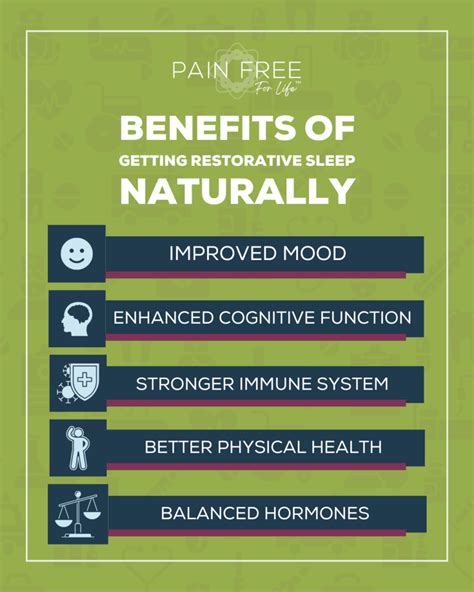Best nightly routine for deep, restorative sleep?

Unlock the Secrets to Restorative Sleep
In our fast-paced world, achieving truly deep and restorative sleep often feels like an elusive luxury. Yet, consistent high-quality sleep is not just about feeling rested; it’s fundamental for physical health, mental clarity, emotional regulation, and overall well-being. The good news is that deep sleep isn’t a matter of luck; it’s largely a result of consistent, intentional habits. By crafting and adhering to an effective nightly routine, you can signal to your body and mind that it’s time to wind down, making the transition into restful slumber a natural and highly anticipated part of your day.
Setting the Stage: The Pre-Bed Wind-Down
The journey to deep sleep doesn’t begin when your head hits the pillow, but rather an hour or two before. This ‘wind-down’ period is crucial for gradually shifting your nervous system from alert to calm. It’s about creating a buffer between the demands of your day and the tranquility of your night.
The Golden Hour: Digital Detox
One of the most significant disruptors of sleep in the modern age is screen time. The blue light emitted by phones, tablets, and computers suppresses melatonin production, the hormone essential for regulating your sleep-wake cycle. Aim to put away all electronic devices at least 60-90 minutes before your desired bedtime. Instead, opt for analogue activities that soothe your mind.
Create Your Sanctuary: Optimize Your Bedroom
Your bedroom should be a haven solely dedicated to sleep and relaxation. This means keeping it dark, quiet, and cool. Ideal sleep temperatures are typically between 60-67 degrees Fahrenheit (15-19 degrees Celsius). Invest in blackout curtains if necessary, use earplugs or a white noise machine to block out disturbances, and ensure your mattress and pillows provide optimal comfort and support.

The Physical Preparation: Nourish and Soothe
Just as you prepare your environment, you also need to prepare your body for rest. What you consume and how you treat your body in the hours leading up to sleep can profoundly impact its ability to relax and repair.
Light Evening Meal & Hydration
Avoid heavy, fatty, or spicy meals close to bedtime, as these can trigger indigestion and discomfort. Opt for a light snack if you’re hungry, perhaps something with tryptophan like a small banana or a handful of almonds. While staying hydrated is important, try to limit fluid intake an hour or two before bed to minimize nocturnal bathroom trips.
Warm Bath or Shower
A warm bath or shower approximately 90 minutes before bed can do wonders. The warm water helps to relax muscles and raise your body temperature. As you step out, your body’s natural cooling process mimics the drop in core temperature that naturally occurs as you prepare for sleep, sending a powerful signal to your brain that it’s time to unwind.

Mental Calm & Relaxation Techniques
Beyond the physical, calming your mind is perhaps the most critical component of a restorative sleep routine. Stress, anxiety, and a racing mind are common culprits behind sleepless nights.
Mindfulness & Meditation
Even a few minutes of guided meditation or mindfulness before bed can significantly reduce mental chatter. Focus on your breath, observe thoughts without judgment, or use body scan techniques to release tension. There are many apps and free resources available to guide you through these practices.
Gentle Stretching or Yoga
Light stretching or restorative yoga poses can release physical tension and promote relaxation without stimulating your body. Avoid intense workouts close to bedtime, as these can be invigorating rather than calming. Focus on gentle movements that open the hips, relax the back, and stretch the hamstrings.
Journaling for Peace
If your mind tends to replay the day’s events or worry about tomorrow, try journaling. Spend 10-15 minutes writing down your thoughts, concerns, or even a list of tasks for the next day. This ‘brain dump’ can help clear your mind, preventing these thoughts from swirling around once you’re trying to fall asleep.

The Final Steps to Slumber
As you approach your final moments before sleep, reinforce the signals of rest to your body.
The Power of Darkness
Once you’re in bed, ensure complete darkness. Even small amounts of light from alarm clocks, charging phones, or streetlights can disrupt melatonin production. Consider using a sleep mask if necessary. The darker your environment, the better your body can produce the hormones needed for deep sleep.
Consistent Sleep Schedule
Perhaps the most powerful habit for regulating your circadian rhythm is maintaining a consistent sleep schedule, even on weekends. Going to bed and waking up at roughly the same time each day helps to synchronize your internal clock, making it easier to fall asleep and wake up naturally, feeling refreshed.

Conclusion: Wake Up Rejuvenated
Adopting a nightly routine for deep, restorative sleep is an investment in your overall health and quality of life. It takes consistency and patience, but the rewards are profound: more energy, improved mood, enhanced cognitive function, and a stronger immune system. Experiment with these suggestions, find what works best for you, and commit to making your nightly wind-down a non-negotiable part of your day. Your body and mind will thank you, ushering in an era of truly restorative sleep and energized, productive days.










